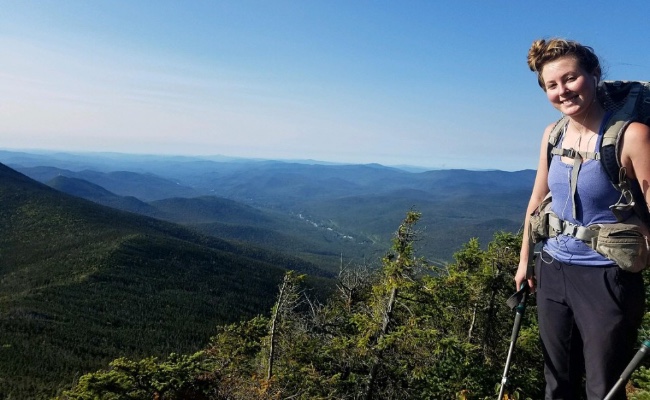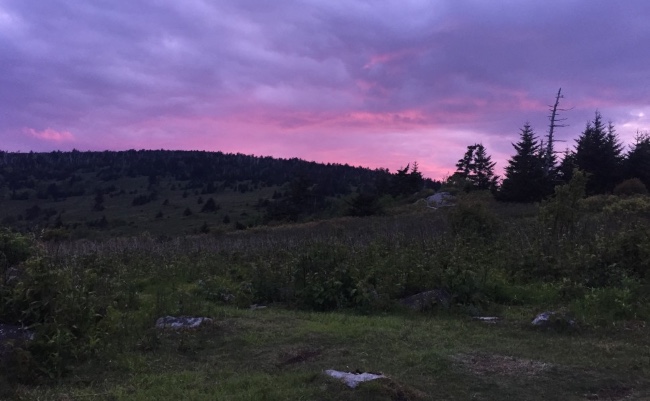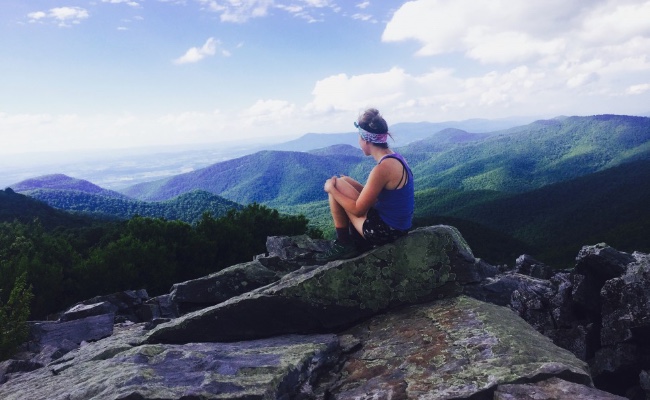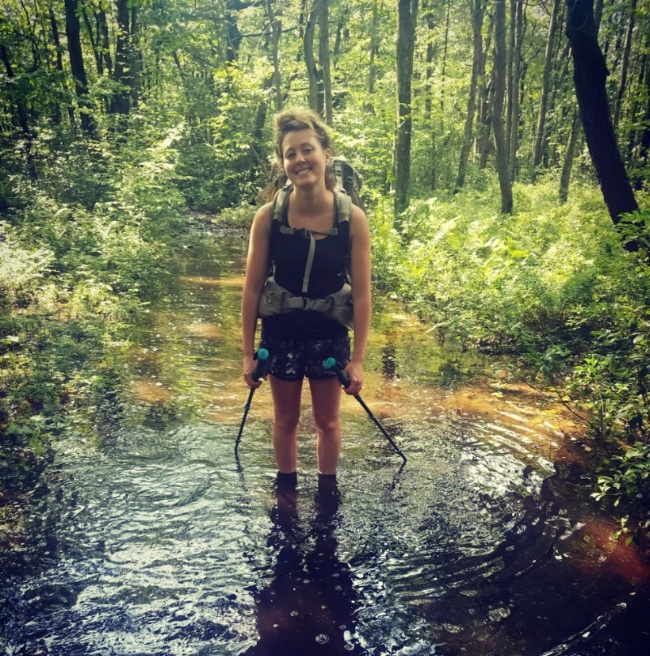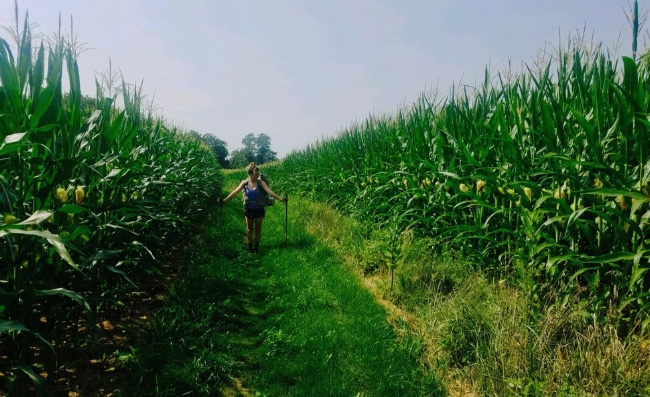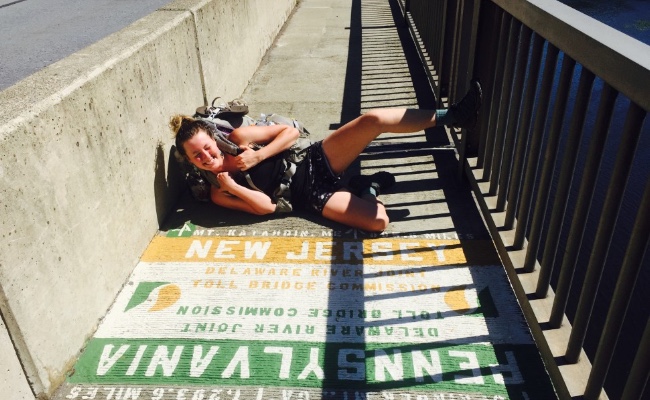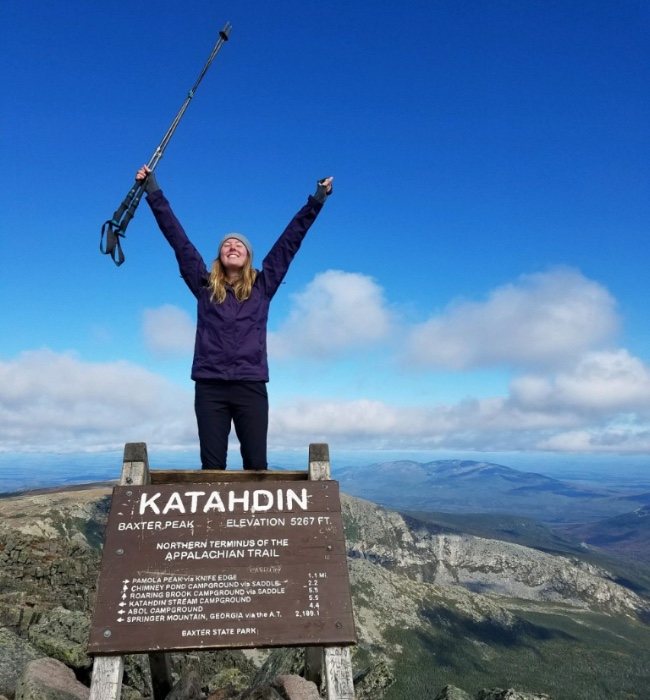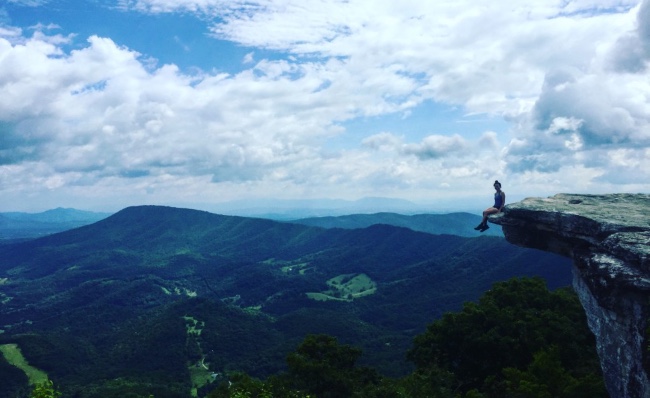
This year on her birthday, Carolyn Burman decided to do a solo hike in one of her favorite state parks in Connecticut. She has magical memories of that trek. She grew up hiking it — her mother even went into labor with her while walking the path. She looked forward to a peaceful, reflective experience in nature. Instead, she found something else.
“There was so much garbage in the park,” 26-year-old Burman says. “Plastic seltzer bottles in the stream that floats by the trail, a Dunkin’ Donuts cup…. I go out on this joyful hike on my birthday, and all I see is trash.”
The park Burman cared so much about was being abused. It could have been a “people are such assholes and everything’s hopeless” moment, but it became a call to action instead.
“I thought, ‘Oh, this is a sign. This is a reminder,'” she says. “I think we all can get really careless with waste. I felt like it was a sign from whatever power, ‘Hey. Remember? You gotta pick this up. You have to care more.'”
Burman has spent more time hiking on trails than just about anyone. In 2017, she completed the entirety of the Appalachian Trail as a thru-hiker, all 2200 miles. It took seven months — a commitment that many of us can’t even fully fathom. Aside from the sheer physical difficulty, there are the financial concerns and the endless logistics to sort out. But Burman wasn’t intimidated. It was 2014, she’d just graduated from college, and, like many young people, was at a loss for what came next.
“It just came into my head,” she says with a laugh. “I couldn’t have picked something further from what was within reach of my skills. Most of the responses I got from friends and family were like, “You? Yeah right.”
As her classmates were getting their first real jobs and launching their careers, Burman began working like crazy to save money. She nannied, she waited tables, she took free classes at REI, she trained physically, and she watched every Youtube instructional video she could find.
“I think part of the practice of a thru-hike is constantly saying yes to something that everyone else around you is saying no to,” she says. “You have to say yes to something that most people don’t think is the best thing for you post-college. You’re practicing doing something that’s totally for yourself.”
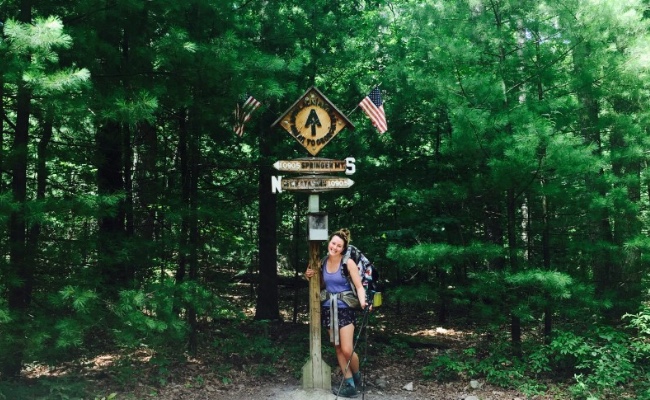
It all paid off. In 2017, after two and a half years of hustling, Burman embarked on a journey that would shift the direction of her entire life. The challenges came almost immediately.
“I didn’t practice setting up my tent before I left,” Burman says, with a laugh.
On her first day, she was desperate to crash and sleep until morning but had to figure out how to set up her tent, reading directions by lantern light. She also quickly realized that the water filter she’d brought wasn’t actually filtering anything.
“So… watching YouTube videos probably doesn’t totally prepare you,” she says. “But I had this undying faith that it was going to work out and this undying faith in myself that I was going figure it out, and that was cool.”
This proved true. It worked out. Burman became more confident on the trail, fell into a familiar rhythm, and once she was used to the physicality of the daily hikes, she was able to take in the beauty around her. And she was endlessly surprised by the landscapes she encountered.
“For me, when I thought of mountains, I thought of Colorado or Wyoming, the Tetons, but the East Coast mountains were just something I didn’t have experience in, and they’re so big and beautiful and special,” she says. “Those images are always gonna be imprinted in my mind.”
Other images became imprinted too — a lack of care for the environment. She stumbled into trash throughout the hike.
“It was daily, 100 percent daily,” she says. “You’d come to a shelter, there are shelters all along the Appalachian Trail, and there would just be a whole shelter full of garbage.”
It infuriated Burman but also left her with a sense of communal responsibility. She decided to clean as she went. Who else was going to do it, if not her? She began picking up small pieces of trash whenever she saw them. Other times, she had to walk past the garbage. Like when she found a ten-pound bag of rice spilled across a picnic table. That extra weight wasn’t a burden she could manage.
“You just hope that a day hiker will come by and pick it up,” she says.
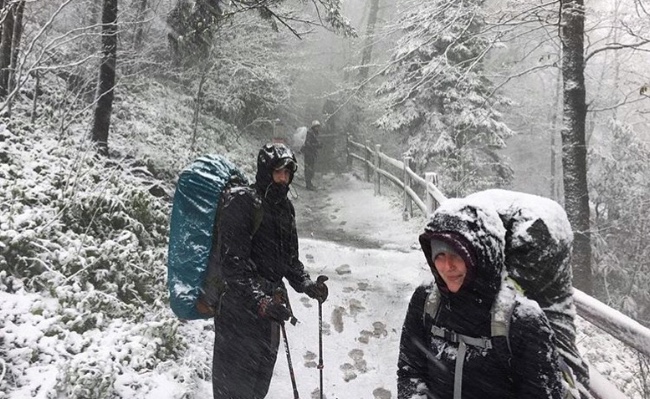
As much as Burman’s faith in humanity was shaken by the garbage she saw on the Appalachian Trail, it was also emboldened by the people who actively came out to help. “Trail Angels” — good samaritans who come in for the day to protect the trails and help thru-hikers — provided some of her favorite memories from the trek.
“Once I turned the corner and there were just like ten people sitting in these pop-up chairs,” she says. ” And there’s this guy. He’s brought his grill, his truck, his two dogs, and he had this spread of burgers, hotdogs, chips, drinks, beer, all this stuff. That was one of my most memorable trail magic experiences. ‘Cause you’re so hungry. You’re so tired, and you just round the corner, and all of a sudden there’s a huge buffet waiting for you.”
Trail angels usually bring trashcans and relieve the hikers of their waste, lightening the load and helping clean up sections of the trail. This inspired Burman. It wasn’t a large time commitment but it certainly felt big to the people it helped — something small that made lives better. It stuck with her.
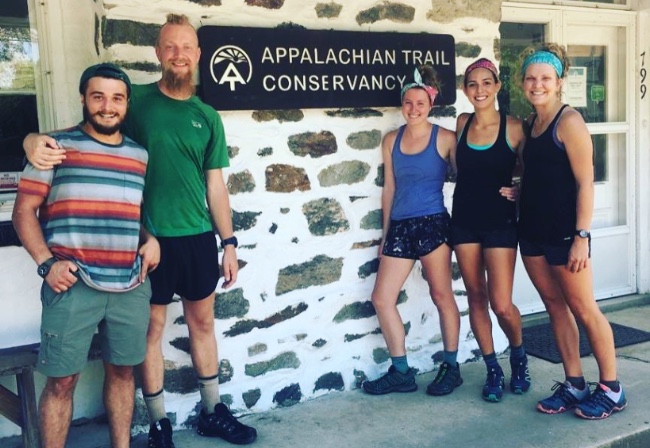
Now that Burman herself is a day-hiker again, she’s grown even more fierce about caring for trails. Hiking, she believes, is a spiritual practice, and part of that practice is keeping nature pure, doing her part to make things better. She works with trail upkeep groups like Keep Nature Wild to support this mission.
“Anyone can be an ambassador for them if you just go out into your local community and you clean up,” she says. “What you learn after the trail is that success is much less about the claim to fame and more about the slow and steady process.”
This is the philosophy Burman tries to implement in her life daily, carrying metal straws in her car and inviting friends for trail cleanups. She believes that the process of saying yes over and over again — like each successive step on the Appalachian Trail — is the same attitude that creates widespread ecological change. You just have to put one foot in front of the other.
“It’s easy to feel like, the world’s so big, and it’s already so destroyed,” Burman says. “But our parents’ generation really, they were like the Tupperware generation, they didn’t know what we know. Our generation knows — which means we have to change the culture. When I feel myself disengaging, I just think of that — it’s up to me, it’s up to me to use this titanium straw, to clean up trails. Because we do know, and there’s no excuse.”
